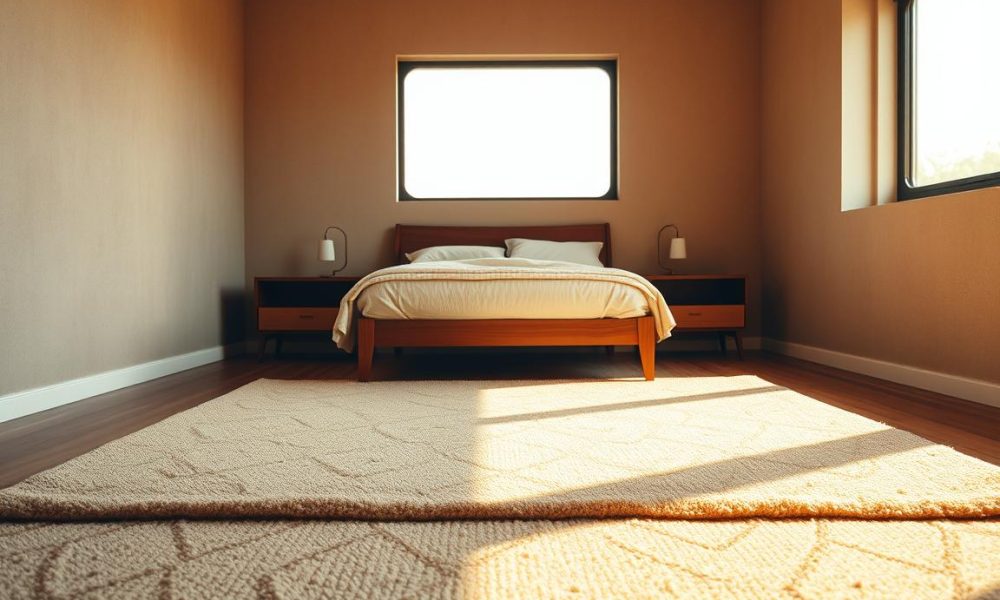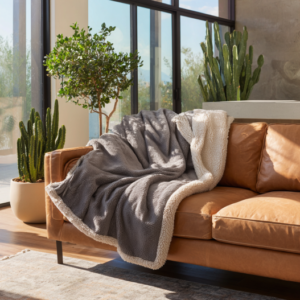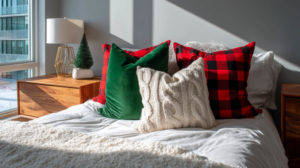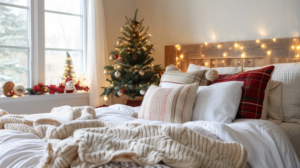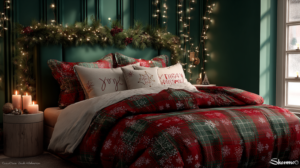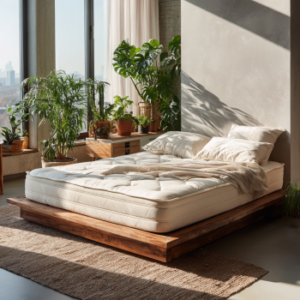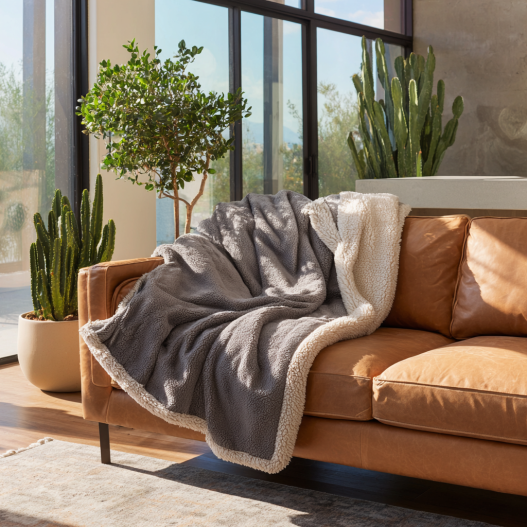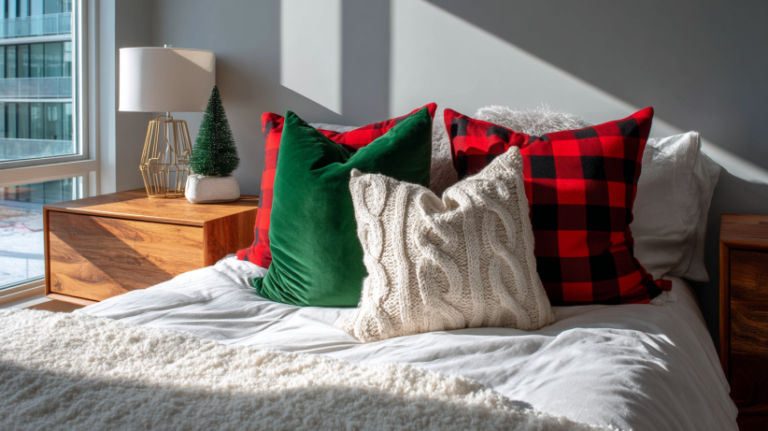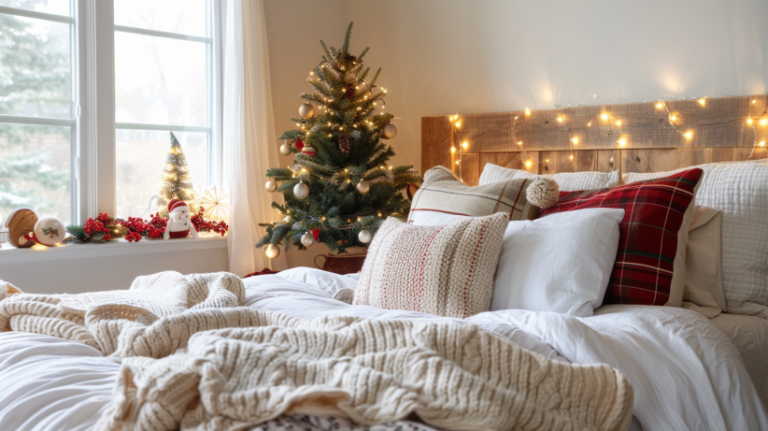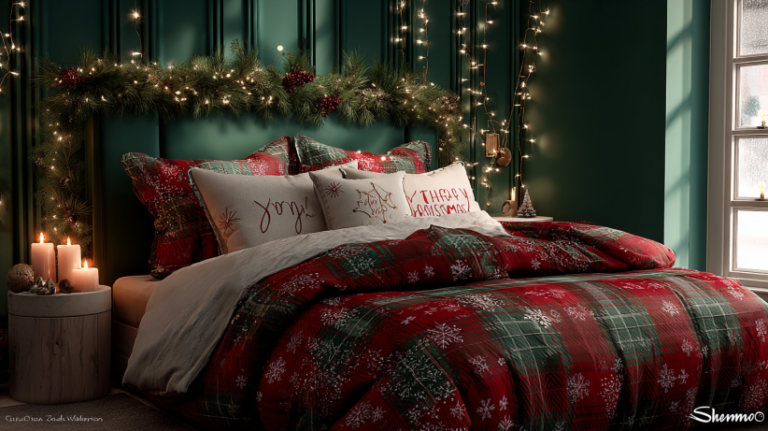Choosing the Right Rug for Small Bedroom Spaces
Rug for Small Bedroom decisions get easy when you plan around the bed. A right-size piece anchors the layout, smooths traffic, and adds cozy underfoot comfort without crowding precious floor.
Use this friendly guide to pick the best size, shape, and material. You’ll learn simple reveals that make a tiny room feel larger, when to slide a rug under the bed, and how light colors or small patterns widen the view. For sleep-health context, adults need at least seven hours a night; a soft landing can make mornings gentler (CDC – Sleep Resources).
A calm, balanced layout starts with consistent floor reveal around the bed.
Key Takeaways
- Plan placement around the bed to anchor the room fast.
- Reveal 12–18 inches of floor on all sides for balance.
- Rug for Small Bedroom rule of thumb: when unsure, size up.
- Use runners to add visual length and keep walkways clear.
- Match pile and materials to your cleaning habits and budget.
Start with sizing: simple rules that make small rooms feel bigger
Measure first, then decide. Leave about 12–18 inches of visible floor on the long and short sides of your bed. This reveal calms the eye and prevents a cramped look.
Mini-scenario: you have a full bed tight to one wall. A 6×9 centered from the free wall creates even reveal, while a 5×7 can float at the foot if doors need clearance.
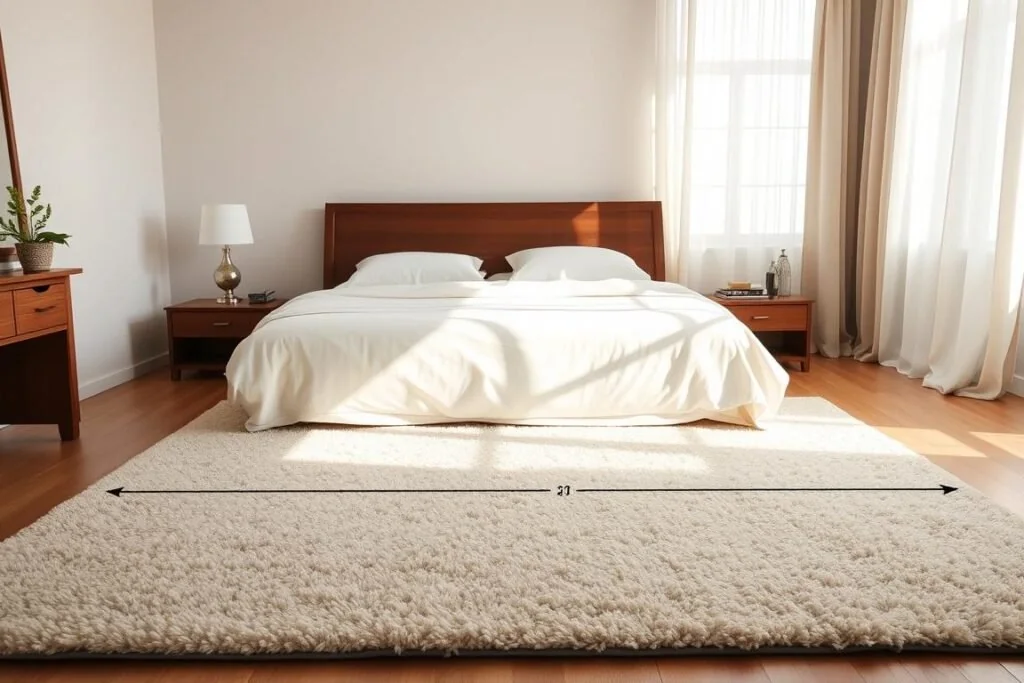
Check door swings and drawers at the side so edges never block openings.
- 5×7: Accent at the foot or peeking at sides for full/queen in tight rooms.
- 6×9: Neat center under a full or queen with modest reveal.
- 8×10: Two-thirds under most queen/king for generous coverage.
- 9×12: All four legs on when the room still shows perimeter floor.
Want the full decision tree? See our pillar guide: Bedroom Rug Size & Placement Guide.
Smart placement ideas for a Rug for Small Bedroom
Use layout to stretch your square footage. Slide partway under the bed for a layered look, or use narrow pieces at the sides to keep the center aisle open.
Mini-scenario: small queen room with two doors. An 8×10 starts near the nightstand line so the headboard stays on floor, not textile. Doors clear cleanly and you keep soft landings.
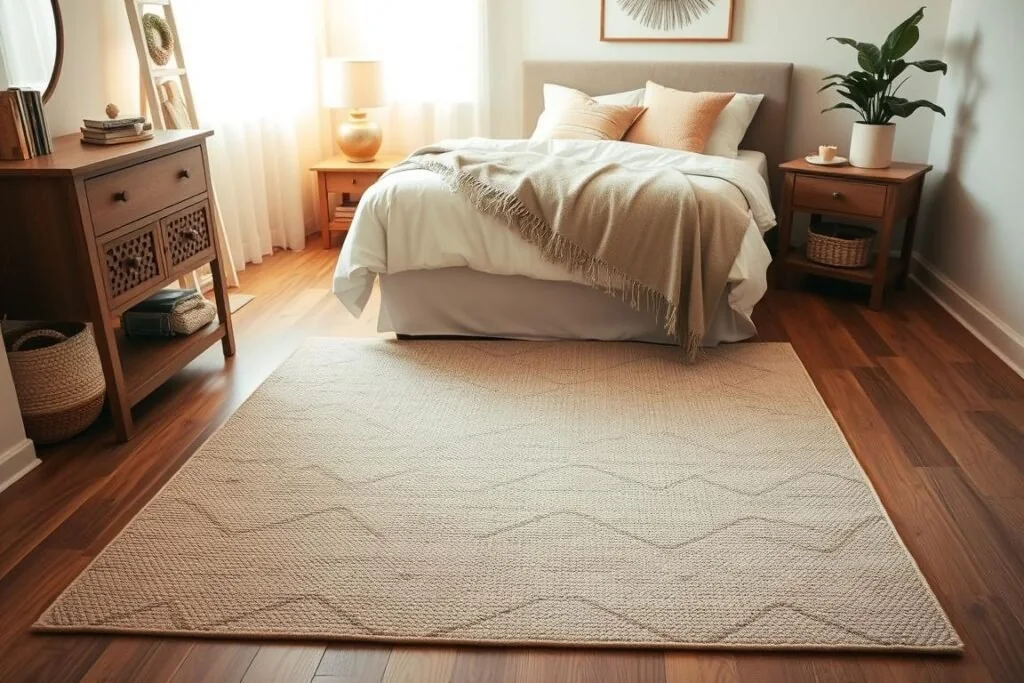
Two-thirds under the bed: Slide 8×10 so the rug begins near the nightstands. All four legs on: Choose 9×12 if you still see floor around the edges. For tight rooms, matching side runners give warmth without a giant footprint.
Choose materials and pile that match your lifestyle
Pick comfort you’ll enjoy every morning, then match care to your routine. Bedrooms are low traffic, so plush feels great, while flatweaves keep doors moving freely.
Mini-scenario: light-sleeper household with pets. A low-pile, washable rug plus a thin pad helps cleaning while keeping the door glide smooth.
For safer buying, look for recognized labels when choosing bedding and textiles. Learn what common labels mean here: Bedding & Mattress Certifications. If you prefer low-tox home goods, this roundup can help you compare materials and finishes: Non-Toxic Mattress Guide.
- Plush or shag: Cozy under bare feet; pair with a thin pad to prevent slipping.
- Flatweave: Door-friendly and easy to vacuum in tight rooms.
- Wool: Warm, resilient, and naturally soil-resistant.
- Synthetics (polyester/PP): Stain-resistant and often washable.
- Jute/sisal: Earthy texture that layers well at the sides of the bed.
Prefer video? Try this short how-to: How to choose the right bedroom rug.
Color, pattern, and shape: easy ways to “stretch” a tiny room
Light, low-contrast rugs bounce light and make the footprint read wider. Small patterns hide lint without visual busyness.
Mini-scenario: narrow room with a queen bed. A pale, small-scale pattern plus a runner along the long wall pulls the eye forward for more “length.” A round rug can soften sharp corners near a dresser.
- Light neutrals: Open the space; great under mid-tone bedding.
- Small pattern: Hides daily dust but stays calm.
- Runner along the long axis: Adds visual length and flow.
- Round accent: Softens corners and offsets boxy layouts.
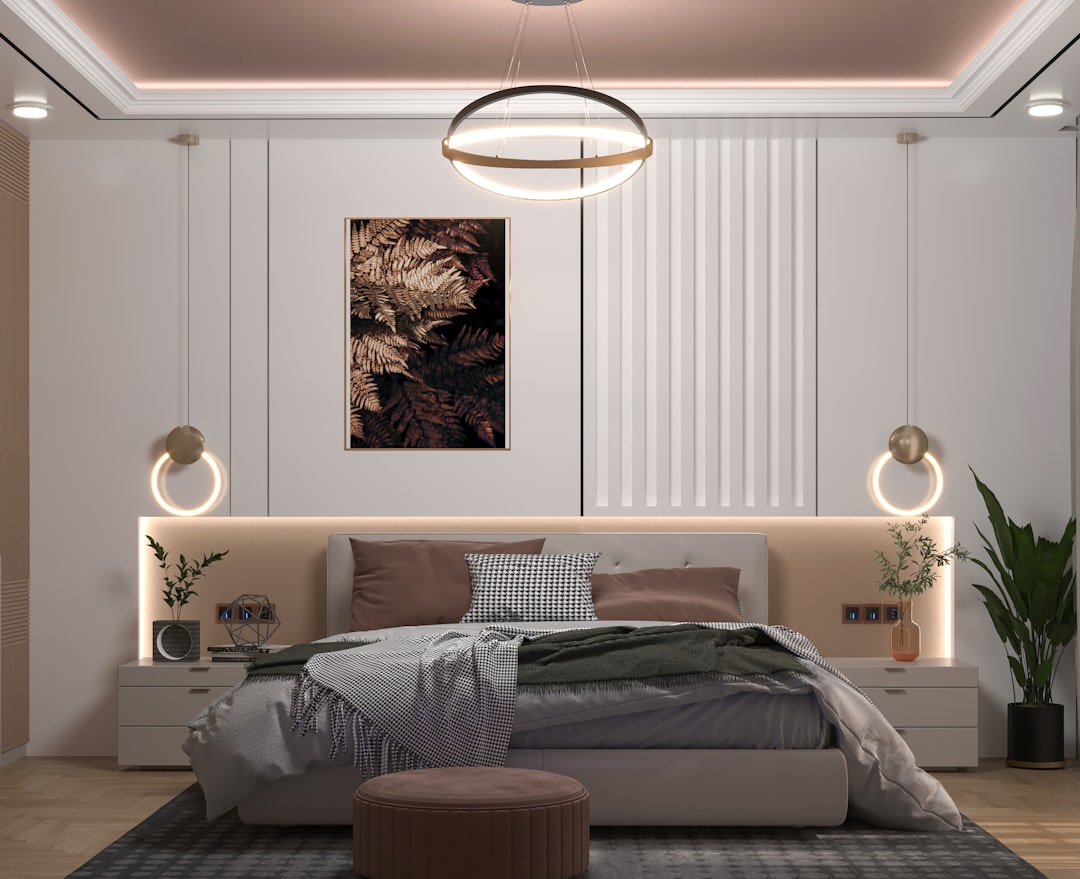
Keep edges aligned with furniture lines so the layout feels intentional, not random.
Budget and care: practical wins that still feel polished
Set the budget by size first. It keeps choices focused and prevents overbuying. Washable constructions offer stress-free care in kid- or pet-friendly rooms.
Mini-scenario: you want plush comfort on a budget. Start with an 8×10 synthetic blend and add a quality pad for cushion—often cheaper than stepping up to a pricier dense pile.
- Use a pad for grip and comfort (thin under doors, cushier in open spaces). See our picks: Best Rug Pads for Bedrooms.
- Spot clean weekly; rotate seasonally for even wear. Learn more: How to Clean an Area Rug.
- Map walkways before you buy to avoid curled edges in high-traffic lanes. Layout ideas: Small Bedroom Layout Ideas.
FAQ
What size rug works for a small bedroom with a queen bed?
An 8×10 usually covers two-thirds under the bed with nightstands off the rug. If the room allows a floor perimeter, a 9×12 puts all four legs on for a seamless look.
Should I put the rug under the bed or beside it?
Both work. Two-thirds under is great for coverage without crowding. Side runners give warm landings and keep the center aisle open in very tight rooms.
What material is best if I have allergies?
Low-pile wool or tightly woven synthetics are easy to vacuum. Pair with regular cleaning and a thin pad. Check labels and care notes before buying.
Do I need a rug pad in a small room?
Yes. A pad adds grip and comfort, and it helps rugs lie flat. Choose a thinner pad if doors skim the floor.
Conclusion
Rug for Small Bedroom choices come down to scale, placement, and care. Measure your bed, aim for a 12–18 inch reveal, and choose 8×10 for two-thirds under a queen or 9×12 to place all legs on the textile. Match pile to daily habits, use runners to guide sightlines, and keep tones light to “open” the space. For deeper sizing charts and room layouts, start with our pillar: Bedroom Rug Size & Placement Guide. Thanks for reading Cozy Bed Quarters—sleep cozier, live better.

